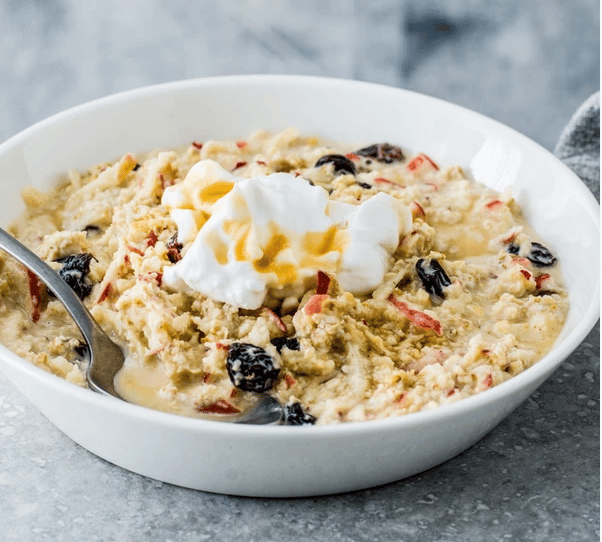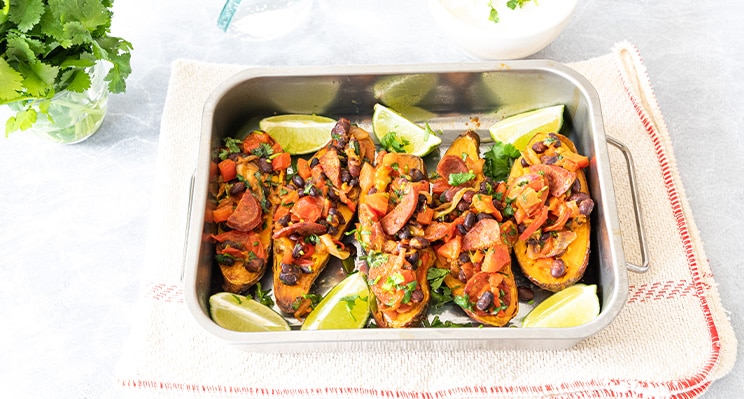We often think of our mind and body as separate, but our mental and physical health are interconnected. Research shows that nearly one in three people with a long-term physical health condition also have a mental health condition, such as anxiety or depression. The opposite also tends to be accurate; someone with a mental health condition is more likely to have a preventable physical health condition, such as heart disease. The gut is one major factor that plays into our physical and mental health.
Our gut contains the enteric nervous system, which is often referred to as the second brain. It communicates with the brain and plays a crucial role in specific diseases in our bodies and our overall mental health. In fact, more than 90 percent of our body’s serotonin, a mood-stabilizing hormone, is produced in the gut. It is also linked to the immune system, autoimmune diseases, endocrine disorders, gastrointestinal disorders, cardiovascular disease and cancer. By taking care of our gut, we can support vitamin production, hormone production, sleep and circadian rhythm, infection control, mental health and more.
Gut Bacteria and Mental Health
Your gut microbiome refers to all of the microbes in your intestines that act as another organ important for your overall health. There are thousands of different types of both good and bad bacteria. A disruption to the healthy balance of bacteria can cause the immune system to overreact and inflame the gastrointestinal (GI) tract. The GI system and the brain are intimately connected. A troubled gut can send signals to the brain, just as a troubled brain can send signals to the gut. This explains why you may feel nauseous before giving a presentation or have a stomach ache during times of stress.
One of the first significant steps to restoring the health of your gut is to maintain a healthy diet full of nutrient-dense foods. This will increase the production of short-chain fatty acids, which are great for supporting gut health. In contrast, certain fast foods, ultra-processed foods, and those high in added and artificial sugars or processed oils can damage the lining of the gut over time, causing severe inflammation associated with depression, anxiety and other cognitive disorders.
Signs of an Unhealthy Gut
Many different things can influence your gut microbiome and affect several aspects of your health. You may notice a few symptoms if you have reduced gut health, such as:
- Upset stomach, including gas, bloating, constipation, diarrhea and heartburn.
- A high sugar diet, which decreases the amount of good bacteria and diversity in the gut.
- Gaining or losing weight without changing your diet or exercise routine could indicate an unhealthy gut. An imbalance will negatively affect your body’s ability to absorb nutrients, regulate blood sugar and store fat.
- Sleep disturbances or constant fatigue may be connected to inflammation and metabolic function of the gut.
- Skin conditions, such as psoriasis may be related to types of bacteria present in the gut.
- Autoimmune conditions result from an altered immune system due to increased systemic inflammation.
- Food intolerances due to difficulty digesting certain foods and certain immune system responses.
How to Balance the Gut Microbiome
Diet alone can’t impact mental health, but there are ways you can balance the makeup of your gut microbiome to support your mental and emotional wellbeing. The experts at Well and Good recommend these six tips:
- Eat fermented foods: They help with inflammation in the gut and enhance the diversity of good gut bacteria. Examples include kefir, kombucha, apple cider vinegar, sauerkraut, kimchi, miso and tempeh.
- Add spices to dishes: Many sources, such as turmeric and saffron, offer rich antioxidant and anti-inflammatory properties that can support gut health. For a gut-boosting touch, you can also try ginger, cinnamon, bay leaves, cardamom and oregano.
- Eat leafy greens: They are rich in folate, fiber, iron and other essential nutrients. Spinach, swiss chard, collard greens, arugula and dandelion greens are all great sources of folate, which is associated with decreased depressive symptoms and improved cognition.
- Eat omega-3 fatty acids: These have been shown to help with anxiety and can be found in fatty fish like wild-caught salmon, anchovies, sardines, walnuts, flax seeds and hemp seeds.
- Eat vitamin D-rich foods: Not consuming adequate amounts of vitamin D can contribute to depression-like symptoms. Foods rich in vitamin D can help regulate mood and other anxiety symptoms, such as tuna, eggs, mushrooms, salmon and shrimp.
- Diversify the foods you eat: Consume the most comprehensive array of plant-based foods possible to keep your gut functioning at its best and diversify the bacteria for a healthy bowel, cardiac, kidney and cognitive function.
Gut-Friendly Recipes
To make things easy, we’ve compiled a quick and gut-friendly recipe for every meal of the day.
For breakfast, try these vegan overnight oats courtesy of Olive Magazine.
Ingredients:
- ⅔ cup grams porridge oats
- 10 oz apple juice
- 1 tablespoon maple syrup, plus extra to serve
- 3 tablespoons raisins
- 2 apples, grated
- ½ cup dairy-free coconut yogurt
Directions:
- Mix together the oats, apple juice, maple syrup and raisins. Leave to soak overnight or for at least 1-2 hours.
- To finish, stir through the grated apple and another splash of apple juice if you want it a bit looser. Divide between bowls and top with a dollop of yogurt and a drizzle of maple syrup.
For lunch, try these baked sweet potatoes courtesy of Love Your Gut.
Ingredients:
- 4 sweet potatoes, each weighing approximately 6 ounces
- 3 tablespoons olive oil
- ¼ lb chorizo, sliced into coins
- 3 large salad onions, sliced
- 1 red pepper, diced
- 1 clove garlic, peeled and finely chopped
- 4 small tomatoes, roughly chopped
- 1 mild red chili, seeds removed and finely chopped
- 14 oz black beans
- 1 tablespoon lime juice
- ¼ cup coriander, chopped
- 1 cup low-fat crème fraîche (or sour cream)
- 2 limes cut into wedges to serve
Directions:
- Preheat the oven to 425 degrees. Scrub the sweet potatoes and dry them with a paper towel. Cut each potato in half lengthways. Place the potato halves on a baking tray, drizzle with a little olive oil and toss to ensure each half of the potato is covered in a film of oil.
- Now place the cut side of each potato face down on the baking tray before placing the tray in the oven for 25 minutes.
- As the potatoes are cooking, warm a drizzle of olive oil in a large frying pan and fry the chorizo until it begins to crispen. Add the sliced salad onions, diced red pepper, garlic, chopped tomatoes and half the chili to the pan. Continue to cook for 10 minutes until the vegetables are soft. Add the drained black beans to the pan and mix well. Finally, add the lime juice and most of the chopped coriander, reserving a little for serving.
- After 25 minutes, insert a sharp knife into each sweet potato to check it is cooked. Remove the potatoes from the oven and turn the cut side upwards. Draw a fork over the surface of each one which will help to hold the topping. Divide the bean mixture between the potato halves. Serve with a bowl of crème fraîche topped with the reserved chopped coriander and chili.
For dinner, try this one-pot chicken pesto pasta with asparagus courtesy of Eating Well.
Ingredients:
- 8 ounces whole-wheat penne
- 1 pound fresh asparagus, trimmed and cut into 2-inch pieces
- 3 cups shredded cooked chicken breast
- 1 (7 ounces) container refrigerated basil pesto
- 1 teaspoon salt
- ¼ teaspoon ground pepper
- 1 ounce parmesan cheese, grated (about ¼ cup)
- Small fresh basil leaves
Directions:
- Cook pasta in a large pot according to package directions. Add asparagus to the pot during the final 2 minutes of cooking time. Drain, reserving 1/2 cup of cooking water.
- Return the pasta mixture to the pot; stir in chicken, pesto, salt and pepper. Stir in the reserved cooking water, 1 tablespoon at a time, to reach desired consistency. Transfer the mixture to a serving dish; sprinkle with Parmesan and garnish with basil, if desired. Serve immediately.
Try Medical Weight Loss to Improve Gut Health
Your body contains trillions of bacteria that influence your health in many ways, including how you digest your food, how fat is stored and whether you feel hungry of full. Healthy gut bacteria are vital for maintaining a healthy weight. At KC Wellness, we can teach you how to maintain a healthy weight effectively by following a realistic and consistent eating pattern in conjunction with getting regular physical activity. We focus on lifestyle changes that encourage safe and sustainable results. We are proud to say that about 90% of our patients have achieved their weight loss goal and successfully kept the weight off.
If you desire to regain control of your life through sustainable weight loss, then medical weight loss may be what you need. Our doctors and staff are always available to answer any questions and provide guidance along the way to help you succeed. You can also check out our comprehensive guide to medical weight loss. Reach out to our team today to see how we can help you look and feel your best. Call us at 816-214-5276 at contact us here.

Dr. Rahul Kapur, M.D. is a board-certified family medicine physician with a dedicated passion for integrative medicine and a deep knowledge of functional medicine. He was named intern of the year at Wesley Medical Center in Wichita, KS, and has been practicing as a hospitalist for over a decade. He has successfully helped many patients in Kansas City with his specialized IV bags, ketamine therapy, hormone optimization and weight loss therapy methods.




